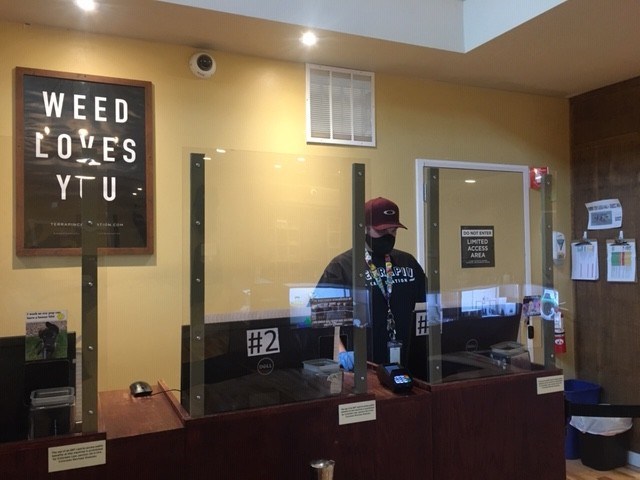The city’s emerging “sin tax” on retail marijuana sales will help fund several feel-good projects in 2021, including an effort to start college savings accounts for 1,900 kindergartners.
The funds from the city’s 3% special retail marijuana sales tax also could go to early childhood education and the second phase of a library feasibility study.
City officials are eyeing other ways to use $330,000 in unspent revenue from Longmont’s retail marijuana trade to help fill gaps in a budget strained by COVID-19 cutbacks.
Part of the deal in allowing the retail recreational marijuana dispensaries to open in Longmont two years ago was for legal pot sales to help prop up city services and programs, Councilwoman Polly Christensen said.
“I think this city would be in much deeper trouble without the nearly half-million dollars from marijuana sales that is being brought in this year,” Christensen said. “It’s a new revenue stream we didn’t have before, and it’s not just one-time revenue.
“It’s called a sin tax,” Christensen added. “But as long as people keep smoking and using marijuana, it will keep coming.”
Ashley Weber, executive director of Colorado NORML, an advocacy group that fights for changes in the country’s marijuana laws, said, “I would say the marijuana revenue is going to the right places.”
Cities and school districts are using tax revenue from pot sales to bolster budget-starved projects all over the state, Weber said.
“It’s going to help schools, fill potholes and other things these places just can’t afford to fix right now,” she said.
The marijuana funding is a one-time shot for programs in the city’s proposed $371.78 million 2021 budget, which is headed for a final city council vote in a few weeks.
Council members have mulled over budget numbers since early September and have found little wiggle room even for needed expenditures.
COVID-19 is largely the culprit, stunting local business growth that generate needed sales and use tax revenue, City Manager Harold Dominguez said in September in his annual breakdown of the budget.
“Projected minor growth in sales and use tax revenue in this proposed budget allows our operating funds to continue to maintain most service levels,” Dominguez said, “but it is not able to enhance service levels or to provide market pay adjustments to our employees.”
To the rescue, at least in some areas of the budget, is revenue from the special retail marijuana sales tax. The four marijuana outlets licensed by the city only opened toward the end of 2018 but the revenue from the sales tax has grown annually since its inception, Jim Golden, Longmont’s chief financial officer, said in an email.
For 2020, the city is budgeting $410,000 from the special use tax, Golden said. Half of that is dedicated to the city’s Affordable Housing Fund.
The other half, $205,000, is part of the funding now available for one-time expenses. There is also $132,558 from the 50% of 2019 revenues not budgeted for use, Golden said.
City staff members are recommending at least a portion of the $337,558 go for:
- $50,000 in one-time funding for the second phase of the library feasibility study.
- $150,000 in one-time funding for early childhood education.
- $70,000 in one-time funding for the 529 Jump program. The project encourages families to create college savings accounts for St. Vrain Valley School District kindergartners. The proposed budget also has $25,000 in ongoing funding from the city’s General Fund for the program. This year’s one-time amount will bring the total budget for the 529 Jump program to $95,000 which would fund 1,900 kindergartners at $50 each, Golden said.
That leaves $67,558 of one-time marijuana sales tax funds still available for use, he said.
Longmont also receives marijuana funding from its 3.53% city sales tax and a 15% state tax, of which the state shares back 1.5% with the city, Golden said.
“Thus, the city is receiving 8.03% of taxes on all marijuana sales,” Golden said.
Through the first eight months of 2020, the three sources of marijuana revenue have generated $914,796 for the city, Golden said.



